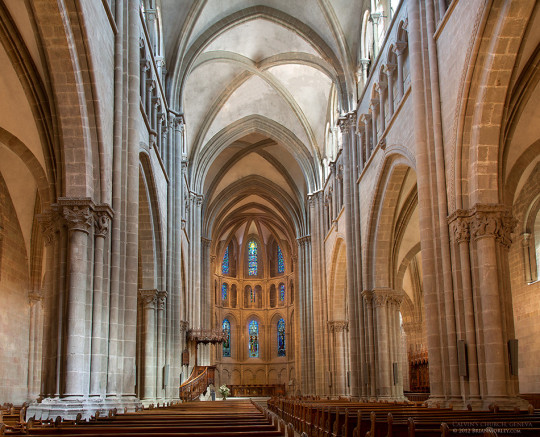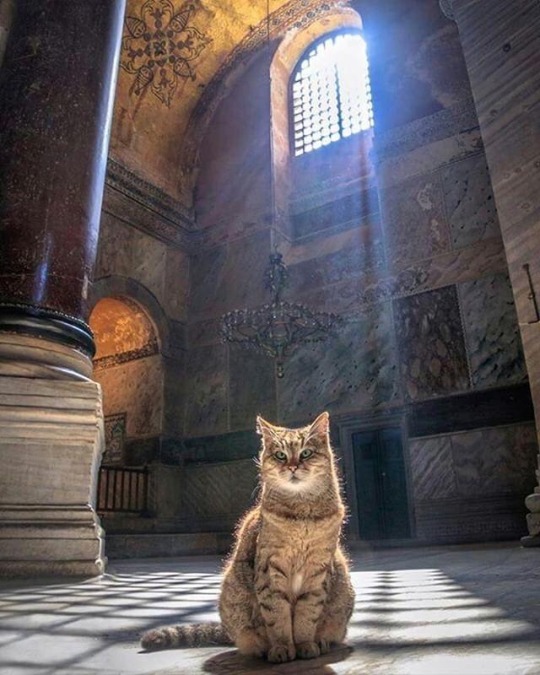#church theology
Explore tagged Tumblr posts
Text
I may or may have not spent 12 hours completely hyper-focused listening to videos on theology (debates, opinions on protestant worship, Christian psychology, and Christian denominations) and then visiting the Global Methodist Org website to learn more about it, reading the catechism and seeing which churches in my state/area are also apart of that on their map in case i ever wanna visit a new church when i'm in the area!! I saw my church on the map hehehe and so i went to our website and read a few of the Wesleyan beliefs the church adheres to!)
I did do it..... and i'll do it again. I had so much fun. It brought me joy to talk to God about it after i was finished. I'm obsessed.*
#*just cant be doing it all day bc i got convicted as it takes time away from one on one time with God...js being silly up there ^#christian theology#theology#christianity#methodist theology#charles wesley#john wesley#george whitfield#george whitefield#wesleyan theology#church theology#global methodist church#united methodist church#methodist church#united methodist theology#christian orthodoxy#christian conservatism#bible believing christian#jesus christ#christian blog#hyper focus#hyperfixation#feastingonchrist
1 note
·
View note
Text
The atomic habits of St. Therese of Lisieux

I used to be one of those people that were like “oh I love St. Joan of Arc, St. Thomas Aquinas, St. Paul, St. Teresa of Avila” because I thought they were Cool and Heroic and they did Big Things
And whenever someone would talk about “The Little Flower of Lisieux” I was like “mehhhhh… okay”
Not in a way that was totally disrespectful, but not totally aware of the enormity of her interior life
Because guys
Wow
You’d have to read The Story of the Soul to really appreciate just WHY she is a doctor of the Church
(She’s the Doctor of Divine Love, btw)
Because St. Therese? She was in the details
They like to say the devil is in the details, but let’s face it— God is in the details, and in his mercy and wisdom, he placed St. Therese there for us to learn from and imitate in our own ways
She had to reconcile her great desire to be a saint with the enormous legacies of the saints that came before her, especially Joan of Arc and St. Teresa of Avila
(She, along with St. Joan, are the patron saints of France. I’m sure that’s something St. Therese never dreamed of)
And she had the realization that God would not have given her a desire that she was incapable of, and that there must be a way for someone “as small as her” to become a great saint
Which lead her to meditate on Mathew 18:4 (Whoever humbles himself like this child is the greatest in the kingdom of heaven)
And she was like “oh, okay. This desire planted into my heart is an invitation to become a little child, because the Lord wants to be the one to carry me to Heaven”
(I am heavily paraphrasing so that you guys won’t be spoiled for Story of a Soul. Go read it!!!)
All of this is to say that her writings and her life reflect a simple but profound theology
The Little Way is one of total dependence on the providence of God, of total surrender and self-mortification— the emptying of the cup of one’s self little by little, so that the Lord can fill it with his graces and abundance, and ultimately, with His own divine self
The Little Way is one of the smallest acts of radical love, because the only person who needs to see it is God
The Little Way is St. Therese going out of her way to nurse the nuns that she didn’t get along well with
The Little Way is St. Therese is doing her best to hold cheerful conversations with a particularly surly nun
The Little Way is St. Therese relishing being splashed with dirty laundry water as a sign of the smallest of suffering that only God would see
I called this particular post her “atomic habits,” because she believed that small acts can lead to holiness when done with great love for our Lord
Small acts of love and self mortification were the things that she sought for while in the Carmel
St. Therese elucidated in her signature sincere and effervescent style the enduring idea that there is no suffering too small, no act of love too small, to offer the Lord— because what he wants is souls, what he wants is us
That’s not to say that her interior life was always rich
She suffered so much from months of aridity that she grew an affection for atheists, even going so far to say, and I quote:
[God] allowed my soul to be overwhelmed with darkness, and the thought of Heaven, which had consoled me from my earliest childhood, now became a subject of conflict and torture. This trial did not last merely for days or weeks; I have been suffering for months, and I still await deliverance. I wish I could express what I feel, but it is beyond me. One must have passed through this dark tunnel to understand its blackness ... When I sing of the happiness of Heaven and the eternal possession of God, I do not feel any joy therein, for I sing only of what I wish to believe. Sometimes, I confess, a little ray of sunshine illumines my dark night, and I enjoy peace for an instant, but later, the remembrance of this ray of light, instead of consoling me, makes the blackness thicker still.
It’s thought that St. Therese experienced this interior anguish up until the end of her battle with tuberculosis, with her final words being: “My God, I love you!”
To summarize everything, reading St. Therese is a study not only of radical love, but also radical humility
From a spoiled child to a martyr of the Carmel, St. Therese lived an inner life that very few of her own sisters in the convent were aware of
Her life is also a testimony to God's perfect timing; St. Therese wanted to be a missionary in Hanoi, but was prevented from doing so when she contracted tuberculosis. She was later named a patron saint to missionaries.
St. Therese's Little Way informed the spirituality of many of the saints and intellectuals that came after her: St. Josemaria, St. John Paul II, Mother Teresa, St. Teresa of the Andes, Blessed Cecilia Eusepi, Hans Urs von Balthasar, and Dorothy Day
On her feast day, let’s take the time to reflect on what small things we can do today for the Lord; what small sufferings we can offer him with great love and humility
God would never inspire me with desires which cannot be realized; so in spite of my littleness, I can hope to be a saint. — St. Thérèse of Lisieux
St. Therese of Lisieux, pray for us.
#catholic#catholicism#theology#spirituality#catholic saints#saints#christianity#therese of lisieux#st therese of lisieux#story of a soul#the story of a soul#doctors of the church
446 notes
·
View notes
Text
Roman Catholics and Orthodox have got to knock it off with "Protestants have brutalist corporate churches". A particular modern strain of Protestantism has hideous modern churches. It's a depressingly common strain, and arguably the dominant one in America, but it's either ignorant or dishonest to pretend as though all Protestants have ugly churches.
Behold:




Clockwise from top left:
St. Peter's Church, Geneva, canton of Geneva, Switzerland (Swiss Reformed)
Barnes Methodist Church, London, England, UK (Methodist)
Dutch Reformed Church, Newbury, New York state, USA (Dutch Reformed)
St. Jude's Church, Glasgow, Scotland, UK (Presbyterian)
#i'm not arguing for protestantism#i am arguing for honesty and accuracy in apologetics#christianity#theology#churches#protestantism#swiss reformed#methodism#dutch reformed#presbyterian
159 notes
·
View notes
Text
There’s a subtle but significant trend where many churches, seminaries, and religious institutions have started promoting the Bible instead of Jesus.
Their messaging, marketing, and rhetoric has shifted away from the person of Christ. The focus on Jesus has been replaced with an emphasis on “being Biblical” and “Bible-based.”
Usually, this is done by those who want to align with and/or cater to partisan platforms. In this way, they can pick and choose scripture to reinforce their beliefs and politics while avoiding the essence of Jesus.
The danger is that instead of ultimately choosing to follow Jesus, one can use verses—or parts of the Bible—to convince themselves to be un-Christlike.
Just like Satan used the Bible in an effort to tempt Jesus, so too can we use the Bible to hate others and avoid Jesus. God help us.
234 notes
·
View notes
Text
In my early twenties I know more theology than most men in the churches I've attended who are twice my age. This isn't a boast, I am no scholar. I say this in abject horror and despair.
#i know more theology than half of the sunday school teachers i know...#i don't have a degree and i haven't studied it in a university#i am not someone who reads theology endlessly#i'm actually pretty lazy about it--to my shame#and yet i know more about church history and more about the core beliefs of our faith than most of the men in positions of authority#it makes me kind of sick
1K notes
·
View notes
Text

ah yes, the Church Cube
#this is how medieval theology works#I'm not building a church btw I'm choosing the freehold#but this is so funny out of context#fallen london
279 notes
·
View notes
Text

“Everything will be very simple and easy if you decide to do it unto God, for God’s sake, and to the glory of God. Everything in life and in the soul will immediately come together.”
-Father Ioann Krestiankin.
#history#books#religion#literature#theology#esotericism#mysticism#orthodox#religious#christian#orthodox christian#orthodox christianity#orthodox church#church#russian orthodox#byzantium#church of Moscow#church of Constantinople#christian aesthetic#christendom#christianity
394 notes
·
View notes
Text
In Judaism, one alternative way of referring to converts is "Jews by Choice."
If a parallel term exists in Xtianity I am not aware of it, but I would like to propose that it really should exist, albeit not just in reference to converts but to all Xtians. Every Xtian should get the opportunity to fully understand their faith in context and to make an informed decision to choose it for themselves. As it stands, many Xtians are deeply ignorant about Jewish history (before and after the formation of Xtianity), the original cultural context for the stories in the Old Testament, the cultural Jewish context that Jesus existed and taught in, the critical historical (scholarly) read of these texts, what they probably meant to the Israelites who produced them, and what they mean to Jews today and how we read these same texts differently in our religious context.
This creates a problem, where Xtians are taught only the narrow band of context that their church deems it important for them to know, and even that is frequently inaccurate or so limited in scope as to make it inaccurate by omission.
And this is because the reality is that the Tanakh (that is, the Hebrew and Aramaic scriptures that the Old Testament is based on) does not naturally or inevitably lead to the Jesus narrative. If you are starting from a Xtian perspective, and especially if you read the New Testament first and then and only then dive into the Old Testament, the Jesus narrative is obvious to you because you are looking for it, expect to see it there, and are coming at these texts with that reading lens in mind. And it's not that you or anyone else is nuts to see that narrative there - there are plenty of solid Xtian reads of these texts that make sense if you already believe in Jesus as presented by the New Testament.
But what the vast majority of Xtians aren't taught is how to approach the Tanakh from a Jesus-neutral perspective, which would yield very different results.
Now you might fairly ask, why would they *need* to approach the Tanakh with a Jesus-neutral perspective? They're Xtians! Xtians believe in Jesus, that's what makes them Xtians!
My answer is multi-pronged: First, I believe that G-d wants a relationship with all people, and speaks to us in the voice we are most likely to hear. That's inherently going to look different for everyone. And that's okay! G-d is infinite, and each of our relationships with G-d are going to only capture the tiniest glimpse into that infinite Divine. Therefore, second, when approaching religion, everyone sees what they want to see. If you nothing religion but find your spirituality in nature, you're going to come at these biblical texts with that lens and take away from them similar things that one might take away from other cultural mythologies. If you, like me, are coming at these texts with a Jewish mindset, you are going to come away with a portrait of Hashem and our covenantal relationship as Am Yisrael. And, of course, if you read with a Xtian lens, you're going to see the precursor narratives leading up to Jesus. That reading bias is not only understandable but good or at least deeply human. Everyone sees what they want to see in these texts. There is no objective or flawless way to read them, and to claim that there is, is to claim that not only is there only one answer, but only one kind of relationship that G-d wants to have with people, that you personally happen to know what that is, and that everyone else is wrong. I am sorry, but if you believe that - if you truly think that you in particular (and/or the people you happen to agree with) know the mind of G-d, then you do not worship G-d. You worship yourselves, because to know the entirety of G-d would require you to be G-d. There's a term for that. That doesn't mean there aren't wrong answers too. But it does mean that there is no singular unimpeachable reading of the texts. What you see in these texts then, says far more about you than it does about the texts themselves or G-d.
So the question then becomes: Why do you want to see this? (Whatever your "this" is.) If your read of these texts is something you choose, why do you choose to see what you see? And is it a meaningful choice if you are not taught other ways of knowing, other perspectives on these texts, and to think critically while exploring them?
Judaism inherently teaches a multiplicity of opinions on the texts, and maintains that they can be read to mean different things, even at the same time by the same person. Deep textual knowledge and methods for learning more, asking questions, challenging accepted answers as a way to discover new meaning, and respectful disagreement are baked into our culture and methods. Some Xtians of some denominations have analogous processes, although on the whole still emphasize correct unified belief over correct action with a multiplicity of belief. I am not suggesting here that Xtians stop approaching their own scriptures as Xtians or adopt Jewish methods instead. What I am suggesting is that Xtians should be taught a fuller picture of these texts and learn other perspectives so that they (1) understand their own beliefs and why they believe them (or after further inquiry if they believe them), and (2) understand and respect that this is what they are choosing to believe and that it is not the only thing one could reasonably believe. Because (3) if not, they are more susceptible to having their faith shattered at random by something unexpected, and will connect less to their faith as a relationship with G-d and more as an obligation based on an unchallenged world view.
And, frankly? (4) It will help them to be better neighbors, to love their neighbor as themselves, and to give to others the respect that they would like to receive.
Being taught the historical context, Jewish history before and after Jesus, the differences between the Old Testament and the Tanakh, the timeline of the development of Xtianity in relationship to rabbinic Judaism in the wake of the destruction of the Second Temple, the development of church doctrine and the various splits amongst the denominations, and Jewish readings of the Tanakh would give clarity and desperately needed context to Xtians about their religion. Is there some risk that some people, upon understanding these things would drop out of faith entirely or, like me, discover that they are actually meant to be Jews? Yes, definitely.
But let me let you in on a little secret: you don't want those people to begin with. You really don't. Because the reality is that if a person is not called to relate to G-d through Jesus, eventually that person will learn this about themselves one way or another. If they are given the information and tools to make a meaningful choice, they will part company on good terms. If not, they will likely become disillusioned and leave the church in pain, anger, and even trauma. They will bring that out into the world with them, and spread the bad news about the Good News making it even more likely that other people who were already on the fence will jump ship on bad terms. You cannot trick people into a meaningful relationship with G-d. You can only give them the tools they need in order to explore on their own and the rest is between them and G-d.
And the bottom line is that you don't need to and should not be afraid of knowledge. If your faith cannot stand up to scrutiny, then it deserves that scrutiny tenfold. The people you lose from the flock? You would have lost them anyway, because we aren't in the driver's seat here. G-d is. Hashem called me to be a Jew with just as much love and desire to connect as G-d calls Xtians to the church and to Jesus. A faith examined is a faith deepened or exposed in its weakness. And if it is the latter, don't you want people to know this sooner rather than later in order to fix it?
So my proposition and wish for Xtians is that they become Xtians by Choice. That they delve deeply into the origins and context of their faith so that they can be 100% certain that they understand their Xtian faith and why they choose to relate to G-d through that lens.
#every hour is theology hour around here apparently#interfaith#this is tochecha from an ex-Xtian ger#who desperately wants for my Xtian family friends and neighbors the level of peace and security in their faith that I now enjoy#the church is not doing its congregation any favors by under-educating them on these matters#Xtians deserve better and should demand better from the church#xtianity#anyway if I have any Xtian followers here who would like book suggestions lemme know
577 notes
·
View notes
Text
pouring one out for my protestant homies who have to endure church shopping. that shit sounds exhausting bro.
#this is not sarcastic like seriously that requires perseverance#i mean catholics do occasionally ''shop around'' different parishes around them bc they can vary in liturgical style/quality#but (a) its kinda frowned upon and (b) we at least know the theology+doctrine+core liturgy is gonna be consistent#can't imagine having to play russian roulette and attend churches at random hoping they'll align with your beliefs
155 notes
·
View notes
Text
“I saw in his hand a long spear of gold, and at the iron's point there seemed to be a little fire. He appeared to me to be thrusting it at times into my heart, and to pierce my very entrails; when he drew it out, he seemed to draw them out also, and to leave me all on fire with a great love of God. The pain was so sharp that it made me utter several moans; and yet the sweetness of this intense pain was so excessive, that I could never wish to be rid of it.”
— Teresa of Avila, The Life of St. Teresa of Jesus (XXIX.17).

— Giuseppe Bazzani, The Ecstasy of Saint Theresa (𝟣𝟩𝟦𝟪).
#teresa of avila#angel#vision#religious#ectasy#god’s love#transverberation#faith#flesh#mystical#ethereal#art#christian mysticism#religious art#theology#religious imagery#art history#christianity#catholic#church#prayer#religion#catholic saints#history#archives#painting#dark romanticism#oil on canvas#painters on tumblr#oil painting
97 notes
·
View notes
Text
Okay this short video explains something really interesting and cool (guy talks about how people's theology affects how they build cathedrals and churches) and I think folks should watch it right now:
youtube
#christianity#church#churches#cathedral#cathedrals#holy places#holy place#god#religion#spirituality#theology#Youtube
54 notes
·
View notes
Text

this is gli
gli was born in the hagia sophia mosque in istanbul, turkey, where she was adored by all patrons, even being pet by us president barack obama when he visited
gli passed away at age sixteen and was buried in the hagia sophia garden
turkey’s presidential spokesman was quoted saying “that cat will be there, and all cats are welcome to our mosques.”
#hagia sophia#christian blog#theology#spirituality#mosque#turkey#istanbul#islam#cute cats#cats#cat#religious aesthetic#religious imagery#religion#cathedral#church#church aesthetic#christian cats
216 notes
·
View notes
Text
The Roman Empire was one of the most powerful political and military entities of Jesus’s world—but Jesus wasn’t concerned with obtaining it.
Christ didn’t ask His followers to become the next Caesar, or control the Roman senate, or enlist in the Roman army. Instead, He warned his followers against putting their trust in such earthly powers.
Despite crucifying Him, Christ achieved victory over Rome through sacrificial love—not through the machinations of popularity, wealth, coercion, or partisan control. For Jesus, Rome wasn’t beneficial to the Kingdom of God.
Instead of politicking as a method to manifest the Kingdom of God, Jesus chose to actively promote joy, peace, patience, kindness, self-control, and love as a countercultural way to exist and function. May we go and do likewise.
250 notes
·
View notes
Text
Suffering is not What You Think

(The Penitent Magdalene)
So often you hear, when people leave their churches, their gripes surround suffering. Why would God allow suffering? Why would God allow babies to be murdered and die of cancer? Why would He allow war and cannibalism and pedophilia? Why did God allow me to see my mother die? Why did he allow this or that?
What I cannot help but notice is that the people saying this are never talking about their own suffering.
"Why does God allow war?" said a cowardly young man who has never seen bloodshed. "Why does God allow cancer?" said a woman who is perfectly healthy. "Why does God allow abuse?" said a man who had the privilege of watching the sex abuse crisis of the RCC play out on the TV screen and not in the sacristy. "Why did God allow my mother do die?" said a daughter who is still alive.
We may mourn, and we ought to mourn, the sorrows and the fallenness of this world, but witnessing suffering is not the same as suffering.

(Just Take Them and Leave Me Alone)
This was never more clear to me than when I spent a summer arguing with my anti-natalist, atheist sister. She would spend hours berating my poor mother and father for the heinous crime of having children. During one of these spats, my sister turned to me and said, "How can you support natalism?" which she said like a slur, "your grandmother abused you from the moment you were born."
Now, this is true. Truer than she knew, or, if I have it my way, will ever know. My grandmother (who was my and my sister's primary caregiver) always despised me because I was born with a deformity. Her hatred only intensified when my sister was born. My sister was, in her eyes, perfect. As a child, my sister would ask for me to be abused in front of her, for her amusement, by my grandmother.
My sister witnessed plenty of my suffering, but she experienced not an iota of it. And yet, she used my suffering as a way to say that all of human life is suffering. She used it to discredit the worth of all human life.

(Ophelia)
I find this is always the case. When I was an atheist, I was confused by people who brought up the "problem of suffering". I never viewed my suffering as something that made my life worse. Even as an atheist and a child, I saw clearly how the suffering I experienced and was experiencing was driving me toward a larger purpose. This pattern of thought followed me into the sexual abuse I experienced in middle school and into my conversion.
My atheist associates, whose suffering I know well, likewise never cite their suffering as a reason for their disbelief. When you really get down to it, "God is a big meanie" is not a reason to reject His existence, say these associates of mine.
It is only being a witness to suffering-- usually an impotent witness-- that causes this specific kind of apostasy. Even if my sister had stopped encouraging it, I still would have been abused. Her behavior would have made little difference. It is the same for the sufferings I listed earlier. Regardless of what we tell ourselves, no boycotting, no Instagram post, and not even tax evasion or immolation will stop the Genocide Israel is purporting against the Palestinians. We, far removed, poor, and powerless foreigners, are impotent. We can do nothing to help someone with a terminal illness not die-- it's terminal. We can do nothing to help the kidnapped children we see on the news, taken from their homes halfway across the country. We cannot bilocate, live forever, or have infinite money.
When these people say, "Why does God allow suffering?" they are actually asking, "Why does God allow my impotence?" The implication is that, of course, they would solve these sufferings if only they were not impotent. Is this the case? I don't know; who am I to judge the heart of another man?
Whatever the case, it is clear to me that witnessing suffering is of some different metaphysical nature than the actual experience of suffering. I've written a little about this privately, so I will get around to expanding upon it in further posts.
#christian#christian blog#christian girl#orthodox christianity#greek orthodox#jesus#orthodox#orthodox christian#orthodox church#orthodoxy#russian orthodox#Antiochian#Christianity#bible#catholic#faith#salvation#atheism#atheist#antinatalism#the problem of evil#the problem of suffering#theology#theological#religious studies#religious trama#religion#catholicism#catholic church#christians
62 notes
·
View notes
Text
Issues with the KJV; Part II - Veneration of Mary and Saints
Worship and Divine Service
In modern English, the term "worship" (like the term "prayer") has mainly come to mean "an act offered exclusively to God." However, the original and official meaning of this word used to be much broader - as was the case of the Greek word proskyneo (προσκυνέω), which is normally applied to God, but also to human beings.
The idea conveyed by proskyneo is that of "offering obeisance," "making a physical demonstration of veneration and respect," or "prostrating oneself." (To put it extremely casually, like a curtsy.) In contemporary Orthodox terminology, the equivalent of proskyneo is often "venerate."
In the EOB, proskyneo is translated as "to express adoration" while it is often translated in the KJV as "to worship."
On the other hand, the Greek word latreia is exclusively used in reference to God.
In the EOB, latreia (λατρεία) is translated as "offering divine service" while it is translated in the KJV also as "to worship."
The Problem
So there is this issue of the KJV as it is today - with its immeasurable influence upon modern theology, the English language, and the Sola Scriptura doctrine professed by Protestant Christianity (and therefore the world) - combining two different words, proskyneo and latreia, under one translation: "worship."
The point of dissension that now comes up is that when those of the Old Religions, which existed before the King James Version, venerate the Blessed Virgin Mary, Protestants often denounce the Old Religions' disposition towards the Blessed Theotokos because their theology relies either wholly or partly on the KJV and the KJV tells them that proskyneo and latreia are the same thing, when historically - as attested to us by the oldest translations of the Bible - veneration and worship have never been the same thing.
To argue that veneration and worship are the same thing is like saying that criticism and insults are the same thing, or complimenting and confessing undying love is the same thing. They are markedly different.
The Old Religions -- the Eastern Orthodox, Oriental Orthodox, Roman Catholics, and Church of the East -- don't offer latreia (worship) to the saints but they offer proskyneo (veneration).
As a last exhibit, I will show to you Matthew 4:10 and Luke 4:8 where Christ quoted the Ten Commandments and said "Thou shalt worship the Lord thy God, and him only shalt thou serve." (KJV) / "You shall express adoration to the Lord your God, and to Him only shall you offer divine service." (EOB)
For the sake of understanding, I will adapt the KJV to this:
"Thou shalt proskyneisis the Lord thy God, and him only shalt thou latreusis."
That said, proskyneia or veneration for humans, saints, was never forbidden, but it is clear to all of us that latreia or worship is offered only to God.
#I highly recommend reading the EOB#the EOB is the best bible translation today!#theology#orthodox christianity#roman catholicism#eastern orthodoxy#church of the east#oriental orthodox#greek#king james version#king james bible#christianity#protestantism#non denominational#panagia#Blessed Virgin Mary#orthodoxy#eastern orthodox#orthodox#educational
47 notes
·
View notes
Text
Degrees of Prayer, according to St. Teresa of Avila

Teresa of Ávila, OCD was a Carmelite nun and prominent Spanish mystic and religious reformer. Sh was born in 1515 at the brink of the Reformation in Ávila, Spain. The first female Doctor of the Church, she has had a significant impact on how we currently understand contemplative prayer, what it means to have a personal relationship with God, and how we can continue the spiritual practices of monastic life even though we work and live in a secular society.
Her writings demonstrate not only rigorous discipline and contemplative prayer, but also a dry wit. She should also be the patron saint of the audacity, because I remember distinctly reading the Interior Castle for the first time and coming across her writing to her fellow Carmelites, "From silly devotions and sour-faced saints, good Lord, deliver us!"
We celebrate her feast day today, October 15. In honor of the first female doctor of the Church, this is a brief rundown of St. Teresa's Degrees of Prayer, with explanations that are not meant to be exhaustive, but to encourage you to read more of her writings, as I pale in comparison to the lucidity of her writing.
Meditation: Drawing Water from the Well
According to St. Teresa, this degree consists of prayer through active meditation. This requires focused effort and withdrawing from the world for a bit, so that we may not be distracted by the concerns and anxieties that plague our minds on a day to day basis. These beginners should aim to be be happy and free and confident. They should attempt great things in the pursuit of active meditation.
Reference: the Life of Teresa of Jesus, chapter 11 and chapter 12 and chapter 13
2. The Prayer of Quiet: The Waterwheel
After a soul has become accustomed to active meditation, St. Teresa encourages moving towards the prayer of quiet. She writes, "Here the soul begins to be recollected and comes upon something supernatural because in no way can it acquire this prayer through any efforts it may make." The fruits of this degree is the movement of the soul away from earthly delights, and into a sense of peace. The efforts of prayer ease, while the activity does not. This degree of prayer reveals grace to us more clearly, and fills us with a deep inner satisfaction. When a soul experiences the Prayer of Quiet, it seems that no greater blessing is possible. Because of this, while many people are given to the prayer of quiet, few people think to go beyond it.
Reference: the Life of Teresa of Jesus, chapter 14 and chapter 15
3. Union: Water Flowing from a Stream
In this stage of prayer, St. Teresa reflects that it now seems that its fruits are all a product of God's work, while one's faculties seem to be asleep. The stream of divine water flows freely into the garden of one's soul; this may happy whether one is in a state of contemplation, or active charity. The inner work and relationship of prayer seems to be continuing beneath the conscious surface. One's faculties fall asleep, and the soul becomes absorbed in union.
Reference: the Life of Teresa of Jesus, chapter 16 and chapter 17
4. Rapture: Heavenly Rain
St. Teresa describes this degree as the prayer of union, using the image of "heavenly rain that saturates the whole garden in abundance." She writes these experiences as short-lived and scarce, but the goodness received as incomprehensible. St. Teresa had other words for this degree: elevation, flight of the spirit, transport, ecstasy.
Reference: the Life of Teresa of Jesus, chapter 18 and chapter 19 and chapter 20 and chapter 21
"My chief aim is to cause souls to covet so sublime a blessing." - St. Teresa of Avila
St. Teresa of Jesus, pray for us.
Links to additional resources:
St. Teresa of Ávila – Who St. Teresa of Ávila Was, Her Feast Day, Carmelite Spirituality, Prayers & Quotes
Four stages of Mystical Prayer in Teresa of Avila
Summary of the Interior Castle by St. Teresa of Avila
St. Teresa of Avila - The Life of by Herself
The Interior Castle or The Mansions
#catholic#catholicism#theology#catholic saints#spirituality#literature#saints#teresa of avila#St. Teresa of Avila#doctors of the church#prayer#contemplation#meditation
39 notes
·
View notes